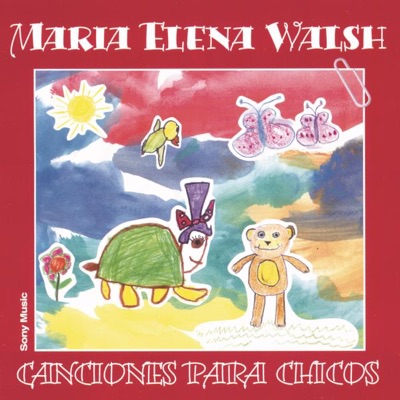Las poesías de María Elena Walsh son divertidas e ideales para los más pequeños. Entre ellas, encontrarás esta, ‘Un hipopótamo’. Son solo cinco versos, un quinteto que esconde un poder fabuloso para atraer la atención de los más pequeños e invitarles a ejercitar la memoria.
Índice de contenidos
Un hipopótamo, una divertida poesía de María Elena Walsh para niños
Esta poesía es muy corta, sí, pero fantástica para leer con los más pequeños. Con ella conseguirás atraer su atención y conseguirás que se interesen por la poesía. ¿Estás preparado? ¡Aquí la tienes!:
Un Hipopótamo tan chiquitito
que parezca de lejos un Mosquito,
que se pueda hacer upa
y mirarlo con lupa,
debe de ser un Hipopotamito.
(María Elena Walsh)
Recuerda que las poesías son fantásticas herramientas educativas para los niños. Utiliza todo su potencial. Puedes trabajar con este poema corto para:
También puedes usar este poema para mejorar la dicción del niño. Lo cierto es que al final los últimos versos parecen un ‘trabalenguas’. Al principio le costará decir ‘hipopotamito’, pero ya verás como al final lo consigue.
Lo cierto es que al final los últimos versos parecen un ‘trabalenguas’. Al principio le costará decir ‘hipopotamito’, pero ya verás como al final lo consigue.
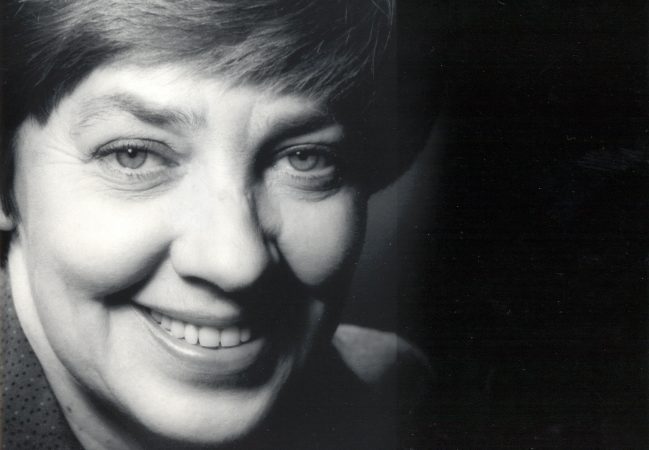 Usa esta poesía y muchas más de este tipo para fomentar su amor hacia la literatura.
Usa esta poesía y muchas más de este tipo para fomentar su amor hacia la literatura.Si buscas más poesías como esta, de esta genial poetisa argentina, aquí encontrarás otros buenos ejemplos:
– El reino del revés: ¿te imaginas un mundo del revés? Los peces volando, las aves nadando… ¡Puede ser muy divertido! Esta poesía es genial para incentivar la imaginación de los niños. ¡No te la pierdas!
– El brujito de Gulubú: esta poesía va acompañada de una canción que se hizo muy popular. Con ella ayudarás a los niños a descubrir las poesía desde otro punto de vista, más musical y rítmico. Es un poema muy pero que muy divertido. ¡Te encantará!
– Zoo loco: este zoo está tan loco, tan loco, que te sorprenderá. ¿Una vaca con cara de reloj? ¡ja, ja! Utiliza este poema de María Elena Walsh para incentivar la fantasía y la imaginación de los más pequeños.
¿Te ha gustado el contenido?
Puntuación media 5 / 5. Votos: 4
Votos: 4
¡Todavía no hay votos! Sé el primero en valorar el contenido.
Publicado por Estefania Esteban
A los niños, las situaciones surrealistas e imposibles les hace mucha gracia. Seguro que disfrutan mucho con esta poesía de la argentina María Elena Walsh (1930-2011): ‘Zoo loco’, una poesía muy divertida, disparatada, sobre unos animales muy locos que hacen cosas extrañas e increíbles. ¿Quieres divertirte y hacer reír a tu hijo con la poesía? ¡Prueba con esta!
Índice de contenidos
Zoo loco, una divertida poesía para niños de María Elena Walsh
Una vaca que come con cuchara
y que tiene un reloj en vez de cara,
que vuela y habla inglés,
sin duda alguna es
una Vaca rarísima, muy rara.
Si una Tortuga llega de Neuquén
a Buenos Aires en un santiamén
lo más probable es que
no haya viajado a pie.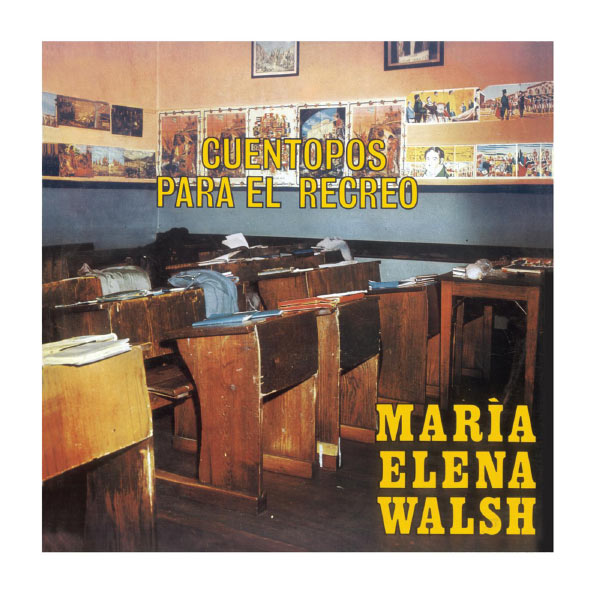
Seguro que fue en ómnibus o en tren.
Un Hipopótamo tan chiquitito
que parezca de lejos un Mosquito,
que se pueda hacer upa
y mirarlo con lupa,
debe de ser un Hipopotamito.
Un canario que ladra si está triste,
que come cartulina en vez de alpiste,
que se pasea en coche
y toma sol de noche,
estoy casi seguro que no existe.
Si cualquier día vemos una Foca
que junta mariposas con la cola,
que fuma y habla sola
y escribe con la cola,
llamen al doctor: la Foca está loca.
Hace tiempo que tengo una gran duda:
hay una Vaca que jamás saluda
le hablo y no contesta.
Pues bien, la duda es ésta:
¿será mal educada o será muda?
Si las Víboras fueran elegantes,
si usaran pantalón, galera, guantes
y moñitos de raso,
igual no habría caso:
quedarían tan feas como antes.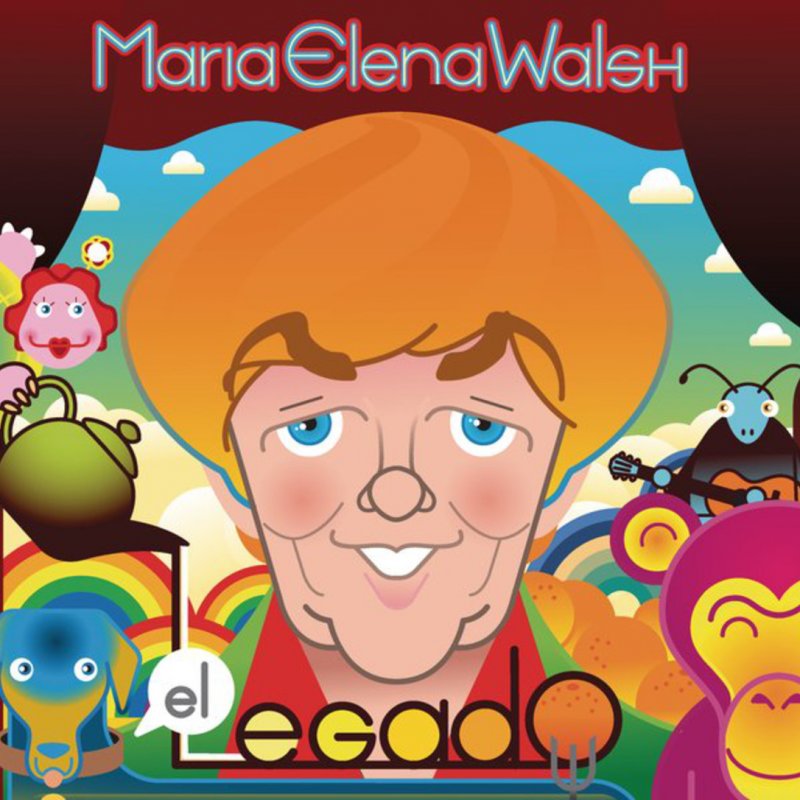
¿Saben qué le sucede a esa Lombriz
que se siente infeliz, muy infeliz?
Pues no le pasa nada,
sólo que está resfriada
y no puede sonarse la nariz.
¿Saben por qué la Garza colorada
sobre una sola pata está apoyada?
Porque le gusta más,
y piensa que, quizás,
si levanta las dos se cae sentada.
Siempre de frac y con zapatos finos,
No parece que fueran argentinos.
¿Por qué, por qué será
que no usan chiripá
ni poncho ni alpargatas los Pingüinos?
Una Hormiga podrá tener barriga
que a nadie desconcierta ni fatiga.
Lo que a toda la gente
le parece indecente
es tener una Hormiga en la barriga.
Un pajarito que se llama Blas,
que tiene pico largo y para atrás,
nadie lo ha visto aún
pues parece que es un
pajarito que no existió jamás.
Un Sapo médico, en Calamuchita,
cobra veinte centavos la visita.
Su única receta
ordena estar a dieta
de chupetín de remolacha frita.
En Tucumán vivía una Tortuga
viejísima, pero sin una arruga,
porque en toda ocasión
tuvo la precaución
de comer bien planchada la lechuga.
Si alguna vez conocen una Trucha
que en un árbol muy alto hizo la cucha,
que solamente nada
en agua no mojada,
señores, esa Trucha está enfermucha.
La Llama, pobre, es un animalito
poco apreciado en la ciudad de Quito,
porque en el Ecuador
hace tanto calor
que quien llama a las Llamas, está frito.
(María Elena Walsh)
Cierto que esta poesía de Zoo loco es un disparate, y no se puede encontrar sentido. Los animales hacen cosas imposibles. Pero puedes usar esta poesía para mejorar la atención de tu hijo e incluso, para incentivar su memoria, si le propones memorizar alguna estrofa.
Para ejercitar la atención, prueba a leer un par de veces el poema y hacer estas preguntas al finalizar para comprobar si ha conseguido retener algún detalle de esta disparatada historia:
1. ¿Qué tiene la vaca en lugar de cabeza?
2. La vaca no habla español. ¿En qué idioma habla?
3. ¿En qué transporte viajó la tortuga?
4. ¿Por qué ladra el canario?
5. ¿Qué le sucede a la lombriz?
6. ¿Por qué levanta solo una pata la garza?
7. El sapo tiene una profesión… ¿cuál es?
Prueba a leer también estas otras poesías cortas muy divertidas para niños. ¡Te encantarán!

También puedes utilizar con los niños más pequeños los podcast de audiocuentos. Son ideales para ellos:
Escucha aquí fantásticos CUENTOS infantiles narrados
¿Te ha gustado el contenido?
Puntuación media 5 / 5. Votos: 6
¡Todavía no hay votos! Sé el primero en valorar el contenido.
Publicado por Estefania Esteban
Argentine poetess, publicist, screenwriter, actress, composer. Maria Elena Olsh was born in Buenos Aires in 1930.
Maria’s father was a railway engineer of Irish origin, and her mother is a simple Argentine woman with Andalusian roots. As a child, Maria Elena lived in a large and beautiful house, where she read and listened to poetry and classical music with pleasure. Friends and neighbors often gathered at the Olsh house to listen to great music and poetry. Maria’s father was an excellent piano player. In a word, Olsh grew up in a cultural environment.
In a word, Olsh grew up in a cultural environment.
When she was 15 years old, some of her poems were published by the magazine “El Hogar” and the newspaper “La Nación”. In 1947, before graduating from art school, she published her first book, Otoño Imperdonable, a collection of poems that was well received by critics and famous Latin American writers and poets.
After graduating from university in 1948, Olsh goes to North America at the invitation of the poet Juan Ramon Jimenez, and then moves to Paris, where he spends four years.
In Paris, Walsh performs in duet “Maria and Leda” with Argentinean singer Leda Valladares. There they record a number of compositions for radio and television.
After returning to Argentina, in 1956, Olsh collaborated on Argentine television and radio, where many television and radio programs for children were filmed and staged based on her scripts. Poems and books “for the smallest” are published. Olsh performs some songs and poems on his own in concerts, on radio and television throughout Argentina.
During the military dictatorship in Argentina (1976-1983), Olsh is a vocal opponent of the coup, her song “Oración a la justicia” (Prayer for justice) becomes one of the civic anthems for human rights in Argentina. Olsh comes out with open letters to the regime, causing the anger and irritation of the authorities. At the same time, Olsh’s poems and songs are being translated and published in the USSR and Eastern Europe.
In 1985 she received the title of “Most Serene Citizen of the City of Buenos Aires”, and in 1990 Maria Elena was awarded the honorary title of Honorary Doctor of the National University (University of Cordoba). Her name is included in the list of honorary and prominent people in the province of Buenos Aires.
Necesito una madre (1966)
Actress:
Juguemos en el mundo (1971)
Composer:
Manuelita(1
)
I am a thousand different things
I store in matchboxes.
shell – in memory of the beach,
a coin – a fragment of the moon,
tiny ray of sunshine
fallen into my hands from the clouds,
a grain of sand that the wind
brought from a distant country.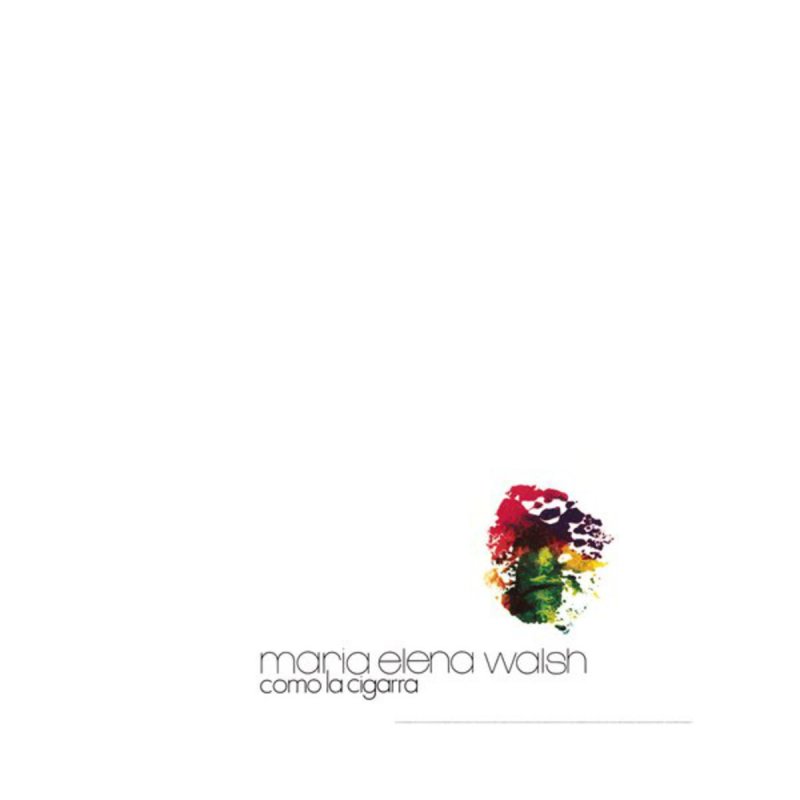
In one box, classified
no one has noticed yet
my bitter tear is kept
at the very bottom, below.
I don’t cry anymore, I’ve grown up
the tear has long since dried up,
and there is no use in it,
but it is a pity to throw away a tear.
You, mommy, are in vain indignant,
you don’t understand values
threaten to throw them in the trash,
but i’ll keep it anyway
shells, cherry pits,
fasteners from an old blouse,
grain from buckwheat porridge,
ropes, ribbons, bows,
pins, candy wrappers,
fluffs, rubber bands, glass
and a bunch of other little things…
Let the pebbles, buttons and corks
live, live in a box,
let there be at least a small house
all forgotten things!
Gentlemen and ladies sitting over a cup of tea. Boys and mothers sitting over a cup of tea. Judges in white wigs holding cups in their hands. Gentlemen in bowlers sitting over a cup of tea. With a cup of tea at the post - mustachioed guards. With a cup of tea on the bridge - stone statues. Squirrels run around the park looking for where to find a tea leaves ... The queen commanded: everyone drink tea!
Tricky-track, tricky-track, mice have a night lesson. Burning candles in the darkness crawling out from under the stove tail - pipe, mustache - upright, they go to class in single file. Mice in uniform caps, in starched shirts in clean collars and one - in large glasses. Teaching begins: how to gnaw cookies in the buffet, like a bad cat circle around the tail. Here are the mice learning dancing on the pot lid. The strict teacher says: "Don't yawn! Look under your feet!" On spilled flour he draws, as on a blackboard, kitchen map, pantry plan and a mousetrap device. If someone fell asleep under the bench - get pricked with a pin! Tricky-tock, tricky-trock Here is the end of the lesson. Mice, taking books under the arms, hiding in their houses.
TSAREVNA
Magical day in a magical forest
Theater on Liteiny
Owl hunting
Children’s KinoMay
Gardeners
Watch out for animals, birds, fish!
Children’s Postcard Museum
Quiz about Maria Helena Walsh
Contest of co-authors
AMAZING PERSON
Why did Dubrovsky NOT return the money to the poor widow?
How not to go into the fireplace under the howl of a hurricane
PEOPLE! READ! MORE!
My grandfather
WHO drew the island?
MAGIC SOUNDS OF ANCIENT TIMES
Under the pseudonym Leon Aer
Character
A word about a real captain
WHAT DID MOTHER SAY?
SO WHO DISCOVERED AMERICA?
BALLET
A goat in the sun
Came, saw, conquered
BIG FRY
Rubric Quiz
Russia and Argentina have a lot in common. For example, national
For example, national
symbols. We have an accordion, and in Argentina – a bandoneon. Exactly
to the accompaniment of this Argentine harmonica, the dance-symbol of Argentina is performed. (We will guess this keyword, and the names of the five national Argentine dances are encrypted.)
Argentina has the same rich children’s literature as ours. But there are very few translations into Russian. We will get acquainted with the work of the classic
Argentine Children’s Literature – Maria Helena Walsh (1930–2011).
And when you suddenly meet her books translated into Russian (or maybe
one of you will become a translator), then you will know – Mary Helena Walsh is worth reading!
BAZAM 1. The writer was born in Argentina, where her father, Enrique Walsh, came from England. He got a job at the newly built in Buenos Aires, the capital
Argentina, railroad. And in the evenings he loved to play music on the piano and sing
English songs. When Marie was little, her father often sang joking songs to her.
English couplets full of amusing absurdities. When Maria grew up, she began to compose poetry. And she was especially successful in those in which there was nonsense, the other side
meaning. And we will take the first letter of the Latin term meaning absurdity.
TOGA 2. In the literature, Walsh is called the “Argentine Edward Lear.”
You probably know this famous English poet, the founder of “poetry of nonsense.” Many of Lear’s literary eccentricities were adopted by his contemporary, who invented fairy tales about Alice. Here is Mary Walsh
there is a funny poem about two funny little men – Patatin and Patatan (“pata” – this is how a duck is called in Argentina). They are exactly two
funny fat men quarreling over a rattle. We need the first letter of the names of these heroes, invented by an English mathematician.
DIDOESCON 3. Walsh’s Nutty Zoo book of poems is complete
from limericks. All the characters are animals. Limericks are five-line poems telling where the character is from and what’s funny about him.
Limericks are five-line poems telling where the character is from and what’s funny about him.
happening. The genre appeared in the nineteenth century in England and is called
in honor of the city of Limerick. It is believed that this genre is associated with English
character. Limericks are exercises for a lonely person, because
all the British live on …, which means they are lonely. You need the first letter.
BOMALAM 4. In Argentina, Walsh’s book “Dylan Kifki” is included in the school literature curriculum. That’s the name of …, who is thrown under the heroine’s door. Everything is with him
time something happens. One day he falls asleep on a sprout, and wakes up under
clouds. To save him, the firefighters fasten Kifka’s wings. And he flies away, waving his trunk. We need a fourth letter.
RERACHAKA 5. Walsh has a limerick about an armadillo who, wearing a sombrero, hid in a cave and waited for even a drop of rain to fall on him. And we need the last
And we need the last
a letter from the surname of an English writer, author of the fairy tale “Where did the battleships come from.”
| Year of Culture of Argentina in Russia and Year of Culture of Russia in Argentina |
ANSWERS TO THE SEVEN SEALS QUIZ
(“Bonfire” No. 7, 2015)
1. Chronos, the letter is “X”, the bird is a koskoroba.
2. Geographer, letter – “A”, bird – tataupa.
3. Wizard, letter – “H”, bird – chachalaka.
4. Into the depths, the letter is “U”, the bird is a booby.
The keyword is JUAN.
Winner of the June competition
“With seven seals” was Daniil MAMAEV (12 years old, Voronezh).
“I take to read the magazine “Bonfire” in the regional
children’s library,” Daniel wrote to us. I like to read books, but I decided to write
for the first time. I read a book about Little
prince and thought for a very long time about how she
ended.